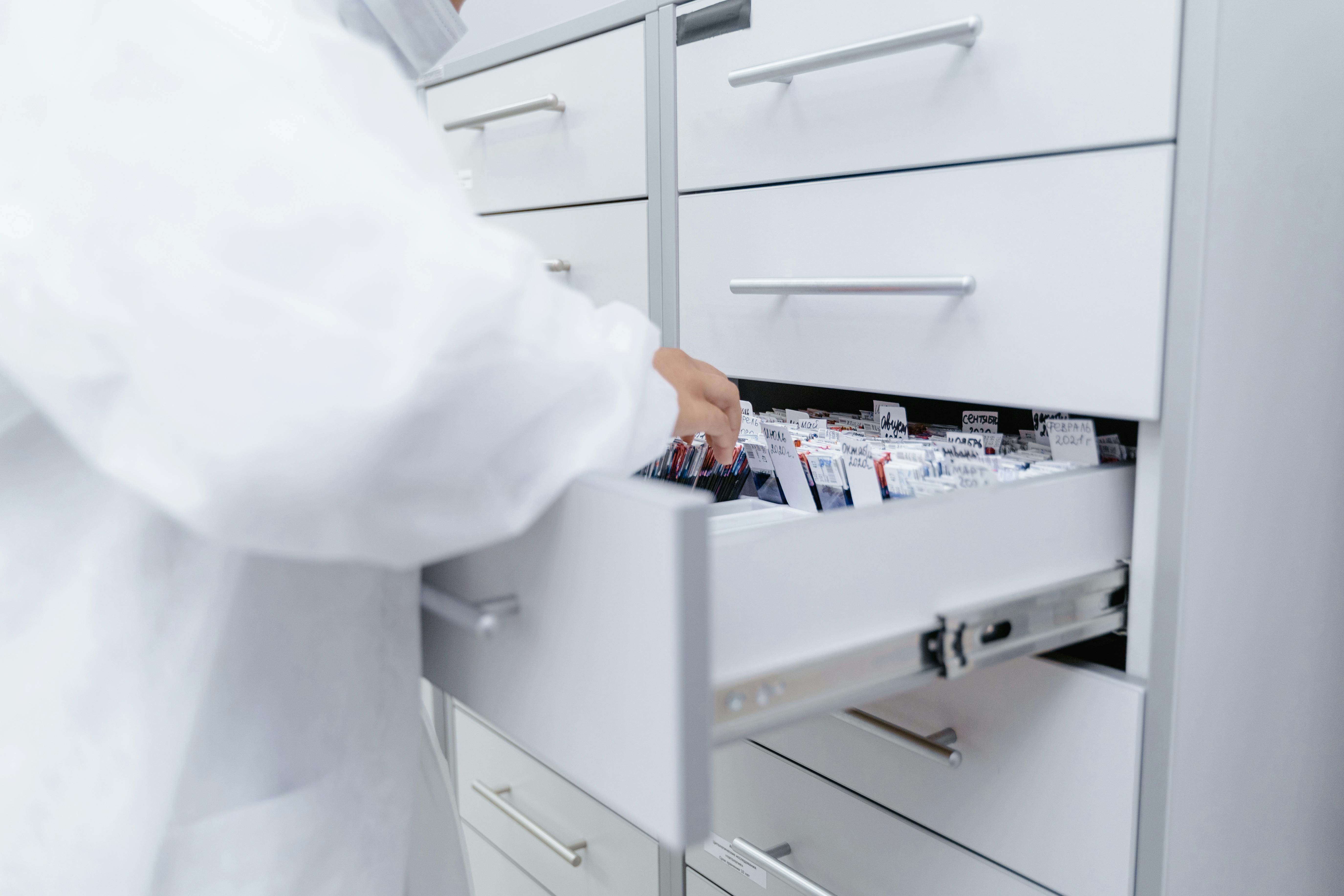.png)
IVF
IVF Success Rates by Age
March 11, 2024
Last updated:
August 3, 2025
.png)
More and more families are turning to In Vitro Fertilization (IVF) to build their families. In fact, 2% of all babies in the U.S. are now born thanks to IVF. For a treatment that’s only been around for 40 years, that’s a lot of babies!
But, many more people undergo IVF than successfully have babies via IVF. About 21.3% percent of IVF cycles using fresh embryos have a live birth. Some people have to go through multiple cycles in order to have their miracle babies. Others end up needing donor eggs. And yet others pursue other life options.
IVF success is highly correlated with the age of the mother. Understanding this age-related impact can help set realistic expectations and make informed decisions about fertility treatment, and this article will help spell it all out for you.
The biological basis: egg quantity and quality
As females age, our ovarian reserve–the number of remaining eggs–naturally diminishes. The quality of those existing eggs also declines over time. Older eggs are more prone to chromosomal abnormalities, which can hinder successful fertilization and healthy embryo development. This natural, age-related decline is the primary factor driving lower IVF success rates in older people.
IVF and Age
The influence of age on IVF outcomes is an unfortunate, but undeniable part of biology and life. As we've discussed, this is primarily due to the natural decline in both the quantity and quality of eggs as someone gets older. This age-related impact can be disheartening for those who want to start a family “later” in life, but it’s always better to be equipped with this knowledge. Here's why understanding this relationship is important:
- Realistic expectations: Being aware of how age affects potential success rates helps you set realistic expectations from the outset of your IVF journey. This knowledge allows you to be mentally and emotionally prepared for the possibilities.
- Informed decision-making: Understanding the role of age empowers you to make informed decisions about your fertility treatment. If you are of older maternal age, you might consider a shorter time frame between IVF cycles, explore options like donor eggs earlier in the process, or consider alternative paths to family building.
- Proactive planning: For younger people considering IVF in the future, awareness of this age-related aspect might motivate proactive measures like egg freezing to preserve fertility potential.
There are of course a host of other factors that go into fertility beyond just someone’s age. And, remember that IVF success isn't solely about the female partner. Any underlying male factor infertility will also play a role in IVF outcomes.
Let’s look at the data: IVF success rates by age
Reliable sources like the Society for Assisted Reproductive Technology (SART), which is part of the Centers for Disease Control and Prevention (CDC), provide valuable insights into IVF outcomes by age.
According to SART data from 2021, live birth rates per egg retrieval using someone's own eggs for IVF are significantly impacted by age, showing a clear downward trend as we get older.
- Under 35: 44.5%
- 35-37: 32.4%
- 38-40: 20.2%
- 41-42: 9.6%
- Over 42: 2.9%
While age is a major predictor, it's not the only factor influencing IVF success. The underlying cause of infertility, overall embryo quality, lifestyle choices (like smoking or unhealthy weight), sperm health, and the specific clinic's success rates all play a role in the outcome. You’ll want to consider these additional variables when assessing your individual chances of success.
Donor eggs increase your chances of a healthy pregnancy at all ages
Here’s some good news: donor eggs can drastically increase your chances of success. Around 53 percent of all donor egg cycles will result in at least one live birth. This percentage varies depending on the egg donor, recipient body mass index, stage of embryo at transfer, the number of oocytes retrieved, and the quality of the clinic.
At every age, the chances of birth with donor eggs is better, but those who benefit the most from donor eggs are those over 35 and those with low ovarian reserve. In fact, about one-quarter of people over 40 who succeeded with IVF did so through the use of donor eggs.

The chart was made using the SART Patient Predictor for an average woman (5’4”, 150 lbs) with diminished ovarian reserve. As you can see, the chances of live birth after one donor egg cycle is 54% for recipients under 40, and only goes down slightly after this.
Summing it up
IVF can be a big commitment– physically, emotionally, and financially. It's natural to feel a mix of hope and anxiety throughout the process. Knowledge is empowering; by understanding how age impacts IVF outcomes, you can make decisions that align with your values and goals.
Remember, statistics represent trends, not individual destinies. While they give us a general picture, each person's fertility journey is unique. If you are of older maternal age, it doesn't automatically mean IVF won't work for you. Exploring options like using donor eggs or pursuing alternative paths to parenthood should all be part of your informed decision-making process.
The IVF experience can sometimes feel isolating. Don't be afraid to seek support from your loved ones, mental health professionals, or online communities dedicated to infertility and IVF. Connecting with others who understand the challenges and triumphs of this journey can be a source of strength and encouragement.
Find an egg donor through Cofertility
We aim to be the best egg sharing program, providing an experience that honors, respects, and uplifts everyone involved. Here’s what sets us apart:
- Donor empowerment. Our donors aren’t doing it for cash – they keep half the eggs retrieved for their own future use, and donate half to your family. It’s a win-win.
- Diversity: We’re proud about the fact that the donors on our platform are as diverse as the intended parents seeking to match with them. We work with intended parents to understand their own cultural values — including regional nuances — in hopes of finding them the perfect match.
- Human-centered. We didn’t like the status quo in egg donation. So we’re doing things differently, starting with our human-centered matching platform.
- Embryo Guarantee: We’re committed to helping your family grow, and proud to offer a generous Embryo Guarantee to every intended parent we work with.
- Lifetime support: Historically, other egg donation options have treated egg donor matching as a one-and-done experience. Beyond matching, beyond a pregnancy, beyond a birth…we believe in supporting the donor-conceived family for life. Our resources and education provide intended parents with the guidance they need to raise happy, healthy kids and celebrate their origin stories.
For those who match with a donor in our fresh egg donation program, the average number of mature eggs a family receives and fertilizes is 12. The number of eggs retrieved varies by patient and cycle, but can be predicted by a donor’s age, AMH, and antral follicle count, all of which will be known to you after the donor’s initial screening. Qualified candidates have an ample ovarian reserve for both their own needs and sharing. Egg share donors also often work closely with a fertility doctor to determine, based on their own medical history, the optimal number of eggs needed for their own future family-building goals. Should it make sense for the donor, they may choose to pursue a second egg-sharing cycle to maximize the chances of success for everyone.
Matching with a donor in our frozen program can provide the opportunity to move forward with your family-building plans faster, as frozen eggs can be fertilized or shipped to your clinic immediately. Donors undergoing frozen cycles complete equally rigorous ovarian reserve testing. While the total number of frozen eggs available will vary based on the donor’s retrieval outcomes, every frozen match is guaranteed to have a minimum of at least 6 frozen eggs.
To learn more about these programs and the differences between them, click here.
We are obsessed with improving the family-building journey — today or in the future — and are in an endless pursuit to make these experiences more positive. Create a free account to get started today!
Read more:
- What You Should Know About Getting Pregnant with Donor Eggs in Your 40s and 50s
- What Parents via Egg Donation Want You To Know
- Six Reasons Why Egg Sharing is a Better Egg Donation Model for Intended Parents
- I'm a Fertility Psychologist. Here's What I Want You to Know About Growing Your Family Through Egg Donation


Dr. Mare Mbaye
Mare Mbaye, MD is a board certified OBGYN based in New York City, in addition to being a Cofertility Founding Medical Advisor. She has worked in the private practice setting caring for pregnant and non-pregnant people with a variety of medical concerns. Dr. Mbaye also boasts several years of experience as a medical advisor, digital health startup consultant, and content creator. Previously, Dr. Mbaye has served as the Medical Director for Noula Health and advised, consulted, and created original content for other startups including Delfina Care, Mina Health, and Pollie. Today, she is also a Medical Advisor for Frame Fertility. Dr. Mbaye is on a mission to bring empathetic, holistic, and affirming reproductive healthcare to all, with a particular focus on historically marginalized groups. With Cofertility, Dr. Mbaye hopes to bridge accessibility gaps in egg freezing to provide people with more freedom and options when it comes to how they build their families. She loves supporting work in the fertility space that thinks outside the conventional bounds of traditional healthcare in the US.
Read more from
Dr. Mare Mbaye








